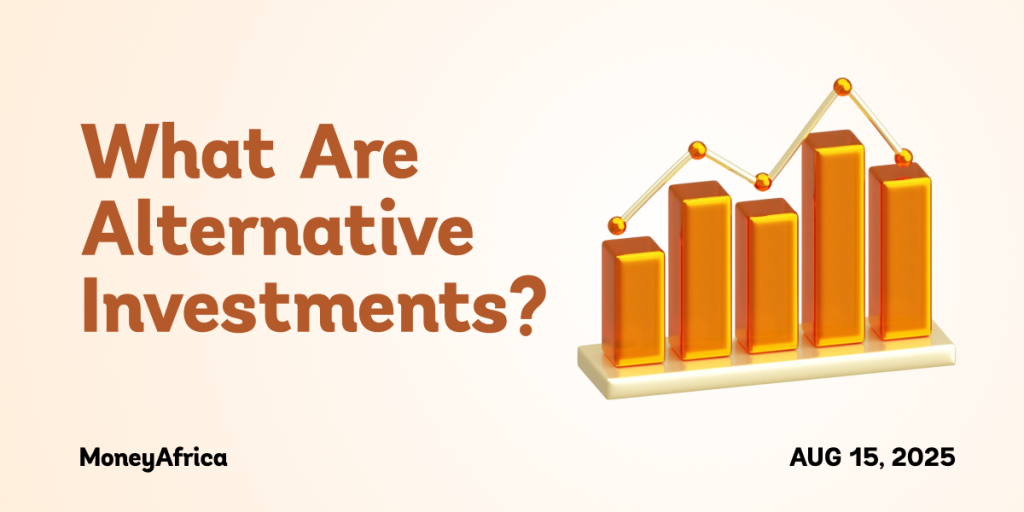When most people talk about investing, the conversation stops at stocks, treasury bills, or fixed deposits.
But here’s the truth: those are just one corner of the investment world.
If you’ve only been playing in that corner, you’re missing out on opportunities that could diversify your portfolio, protect you from inflation, and potentially give you better returns.
Welcome to the world of Alternative Investments.
What Exactly Are Alternative Investments?
Think of your investment options like food choices.
- Stocks and savings accounts are your rice and beans—common, familiar, and on almost every plate.
- Alternative investments are the special dishes, not on every menu, often more expensive, but they can be worth it if you know how to enjoy them.
In technical terms, alternative investments are assets you invest in outside the traditional stock market.
They tend to behave differently from stocks and bonds, which means they can balance out your risks.
Common Types of Alternative Investments
Here are some examples:
- Real Estate
Buying land in a growing area to sell later, or purchasing an apartment to rent out. - Private Equity
Investing in a private company before it becomes big, like funding a promising tech startup in exchange for equity. - Commodities
Gold, oil, cocoa, cashew, physical goods that can be traded and often hold value during inflation. - Collectibles
Rare art, vintage cars, signed sports memorabilia. Not for everyone.
- Digital Assets (High Risk)
Cryptocurrencies and NFTs. Extremely volatile, but part of the alternative investment conversation.
Why They’re Worth Considering
Diversification : If stocks crash, real estate or gold might hold steady or even grow.
Inflation Protection: Land, property, and commodities often rise in value as prices in the economy rise.
Unique Opportunities: Some investments aren’t available to the public stock market and can offer exclusive returns.
The Flip Side: Risks You Must Respect
Liquidity Risk: You can sell stocks in minutes; you can’t sell land that quickly.
Capital Requirements: Some options (like property or private equity) need millions to start.
Knowledge Gap: You can’t just “wing it” with wine investing or oil trading. Mistakes can be costly.
How Beginners Can Start Small
If you’re curious but cautious, here are practical entry points:
- Real Estate Crowdfunding: Platforms that let you own a small share of rental property.
- Gold ETFs: Gives you exposure to gold prices without buying and storing the metal.
- Regulated Agric Schemes: Verified platforms that allow you to fund farming projects for returns.
Tip: Always confirm a platform is licensed by the SEC or regulated in its sector before investing.
Alternative investments are not a magic ticket to wealth, but they are powerful tools for building a balanced, resilient portfolio.
The key is to:
- Educate yourself first
- Start small
- Spread your risk
Because in the end, your best investment is still knowledge.
At MoneyAfrica, we offer one-on-one financial advice. Book a session here: themoneyafrica.com
And for the children? Our Financial Summer Class for ages 7–17 is happening right now! It’s a fun way to teach them about money, saving, and making smart choices.
Sign up here: www.moneyafricakids.com
Let’s make this summer full of memories, not regrets.

